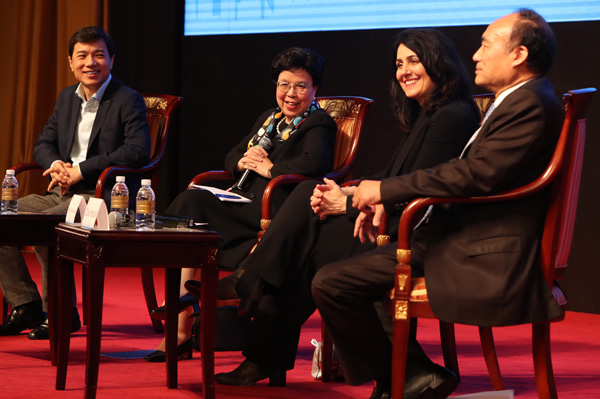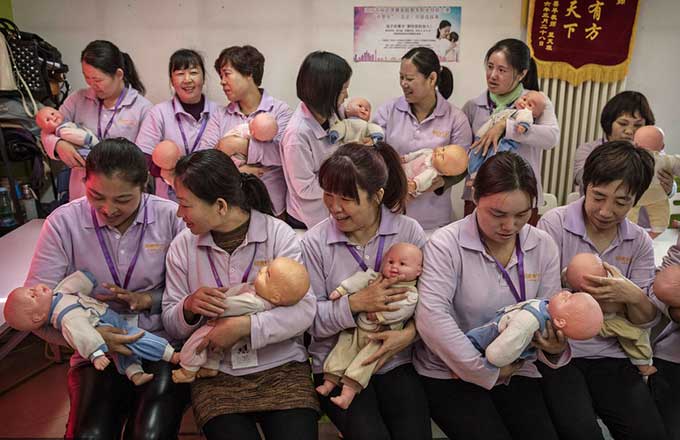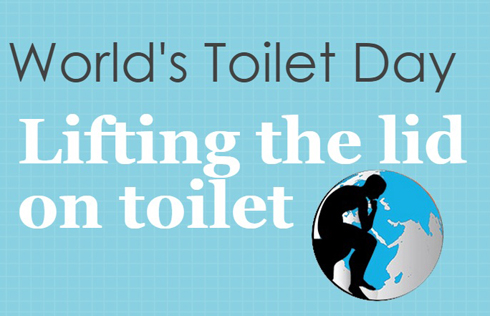Tech sector urged to focus on health
Artificial intelligence is being used to prevent costly misdiagnoses
 |
|
(From left to right) Robin Li, chairman and CEO of Baidu; Margaret Chan, director-general of the WHO; Baroness Joanna Shields, UK Minister for Internet Safety and Security; and Zhao Houlin, secretary-general of International Telecommunication Union, share their opinions about the application of Internet Plus in health during the ongoing Ninth Global Conference on Health Promotion in Shanghai on Tuesday. [Photo by Gao Erqiang/China Daily] |
Baidu CEO and chairman Robin Li called on the technology sector on Tuesday to "join hands" with the health sector to tackle more of the world's health problems.
"If we can marry these two together then I think magic can happen. It's very exciting to think about the application of Internet Plus in health," Li said.
Speaking as part of a panel of experts at the Ninth Global Conference on Health Promotion in Shanghai, Li suggested that health companies utilize the openness of the internet and big data to empower people to lead healthier lives.
Li was joined on stage by Margaret Chan, director-general of the World Health Organization, who described healthcare as "one of the most, if not the most, conservative sectors". She said the sector needs the help of technological innovators to help countries achieve the Sustainable Development Goals set out in the UN's 2030 Agenda for Sustainable Development.
One of the issues Li has noticed during his recent forays into the health industry is the "low expectations" of the technology sector among medical professionals.
Making a medical database searchable, for example, can be solved by one server, Li said. "We have 500."
More than 60 million medical and health-related queries are performed on Baidu every day, according to Li, highlighting the growing reliance on the internet for self-diagnosis.
Providing authoritative information online has been a top priority for Baidu since Chinese internet regulators ordered the company to change the way it displays results following the death of a student who visited a healthcare provider found at the top of a search list in 2014.
In addition to strengthening its encyclopedic database, the company has rolled out a slew of initiatives aimed at the healthcare sector, including app Baidu Doctor, which allows patients to ask doctors questions, make medical appointments online and search for health information.
Earlier this year, Baidu began testing its "Medical Brain" system - artificial intelligence designed to help doctors avoid costly misdiagnoses - in hospitals across China.
"In 80 percent of cases in one hospital, the Medical Brain came to the same conclusion as the doctors. But we can go much further in precision medicine," Li said.
However, while China's hospitals begin to embrace innovation and big data, more work is needed to ensure they can communicate on both a local, national and international level.
Zhao Houlin, secretary-general of the International Telecommunication Union, said that countries should adopt an international standard and issue guidelines from the "top down" on how to connect hospitals with smart databases.
"To connect hospitals you need to have some kind of common standard," he said. "Telecoms authorities and healthcare authorities need to work together to keep these systems safe and reliable."





















